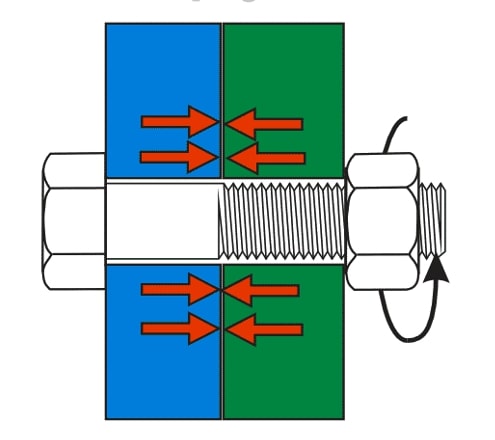Although the mechanical principles that make a screw or bolt work are elementary – the inclined plane and the lever – the proper application of those simple machine principles to seal a vertical joint or sustain a tower crane under stress, is extremely complex. For many years, there has been recognition of the need to train, test, and certify craftsmen prior to allowing them to work on significant industrial applications that may have safety and structural integrity issues.
This course trains and tests bolting personnel at the supervisory level on the technological and practical problems of assembling bolted joints in large scale industrial applications.
You Will Learn To:
- Describe the principles of joint design and reliability
- Explain the “nuts and bolts” of nuts and bolts
- Explain the concept of “load” as a bolting goal
- Describe ways to accomplish “load” (torqueing and tensioning)
- Identify factors affecting proper “load” and how to compensate for problems
- Identify the proper selection and installation of gaskets
- Idenitfy familiar with bolting tools of all types
- Describe the advantages and disadvantages of various bolting methods and where to use them
- Identify assembly procedures (bolting patterns, incremental tightening, etc.)
- Explain work planning and preparation (tools, hardware, bolting plan, safety checklists)
Who Should Attend?
Practicing design and manufacturing professionals involved in assembly of electro-mechanical hardware components and engineers and technicians in design and assembly operations.
Engineers involved in the design, construction or maintenance of pressurized equipment utilizing flanged joints for the petroleum, refining, chemical, power, and process industries.
Course Materials (included in purchase of course)
- Access to the ASME PCC-1 – 2022 Guidelines for Pressure Boundary Bolted Flange Joint Assembly Standard via the ASME Digital Collection for the duration of the course.
- Digital course notes via ASME’s Learning Platform
This ASME Virtual Classroom course is held live with an instructor on our online learning platform.
Certificate of completion will be issued to registrants who successfully attend and complete the course.



